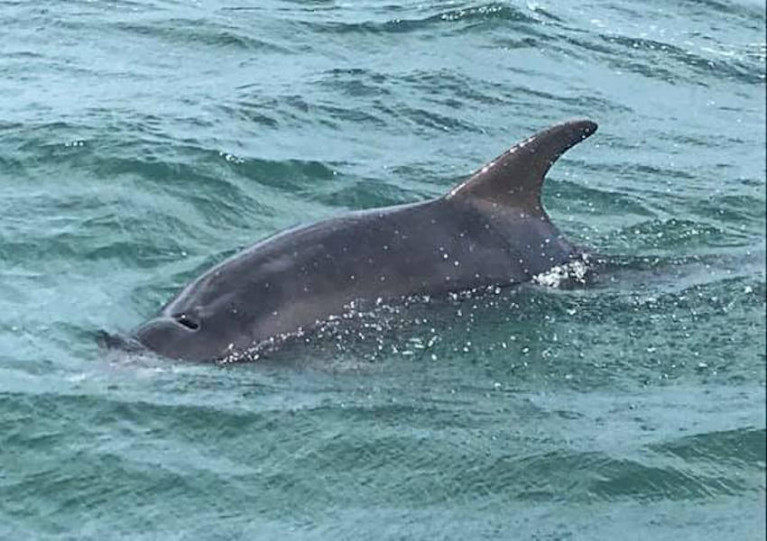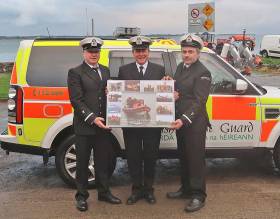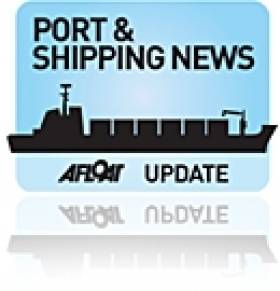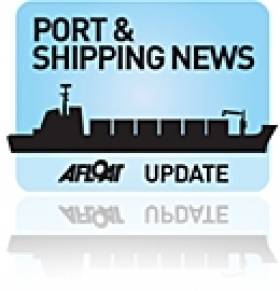Displaying items by tag: Greenore
Ireland’s Newest Resident Dolphin Gets A Name
Ireland has a new resident dolphin, as a solitary bottlenose seems to have made its home in Carlingford Lough — and locals have voted to name it ‘Finn’.
Nearly 3,000 people took part in the Facebook poll in which Finn (the Anglicisation of Fionn) won out over ‘Bobby’ in a landslide.
“As we don't know if the dolphin is male or female, Finn works well as it is a popular name for both boys and girls,” the Carlingford Lough and the Cooley Peninsula Facebook page said.
“But if we can call our famous legend Finn or Fionn, we are sure the dolphin won’t mind.”
Carlingford dolphin this evening @CarlingfordIRE @DundalksNews pic.twitter.com/uW99G5EqE3
— peter noone (@peterno53001163) July 17, 2020
The Dundalk Democrat reports that Finn has been recently sighted ‘belly flopping’ near the port of Greenore — but marine wildlife experts warn that this may be a sign of distress.
Particularly in light of reports that a snorkeller was seen swimming close to the dolphin, all water users are to be reminded that it is a wild animal and advised to keep their distance.
Promotion For Greenore Coast Guard Chief
#Coastguard - Greenore Coast Guard congratulate their retiring officer in chief James Larkin, who is stepping down after 21 years in the post.
Larkin now takes up a full-time role as section manager for the Irish Coast Guard’s Eastern Region.
He is succeeded at the Co Louth coastguard station by George Campbell, who along with deputy OIC Shay Gormley presented Larkin with a canvas on behalf of all Greenore Coast Guard volunteers.
Following the completion of an extensive port dredging project, the arrival of the largest steel ship to ever call to Greenore represents a new landmark for the port.
The cargo vessel MV Smart Tina arrived in Greenore Port from China as part of its maiden voyage. The MV Smart Tina has a dead weight tonnage of 38,900T and measures 180 metres in length.
Greenore Port completed an extensive port dredging project in May. The main aim of the project was to make the port accessible to 8-metre draft vessels at all tidal conditions. Prior to the dredging works being carried out, the port would have been unable to handle a vessel of this size. One of the most challenging aspects of the project was the deepening of the berthing area which is located in a section of the harbour with a rock bottom and strong tidal currents. "Dredging commenced in February and by mid-May we had removed over 7000 tonnes of rock from the harbour bed" said Niall McCarthy, General Manager of the Port.
Greenore Port was purchased by the Doyle Shipping Group in late 2014 and the port deepening project is part of the group's strategic plan to develop facilities at the Port. McCarthy commented that the project was an investment in the future of the port, "there is a growing trend in the industry for larger, more efficient vessels which provide customers with economies of scale, it is important that Greenore Port can facilitate such vessels, so the arrival of a vessel the size of the MV Smart Tina is indeed a landmark for the Port"
Greenore Port's previous largest steel ship was the MV Ourania, which had a dead weight tonnage of 27,797T.
A privately owned Irish company the Doyle Shipping Group's portfolio includes operations in Dublin, Belfast, Cork and Foynes Ports. The company has been operating since 1886 when it was founded by DF Doyle.
New Arklow Bulker Docks In Dublin to Load at Tara Mines Facility
She has a gross tonnage of 2,998 and a single-box hold with two portable bulkheads which can be placed into 10 positions for cargo separation. At 4,800 dwt, ship is certified for the carriage of dangerous goods of IMO Class 4.1, 4.2, 4.3, 5.1 and 5.2 (packaged) as well as general bulk cargoes. The main engine is a MAN 6L27/38 2040kW gearbox with CPP, delivering about 12 knots.
The 89m Arklow Forest was one of the 4,500 dwt 'R' class designs but was modified to allow carriage of a further 300 tonnes of cargo. She follows Arklow Field (PHOTO) which entered service this year and to read a report on another F class, Arklow Future click HERE.
Arklow Shipping Ltd with its headquarters in Co. Wicklow operate the fleet which in the majority are Irish registered. Some vessels though are managed through Dutch subsidiary Arklow Shipping Netherland B.V. based in Rotterdam where they are also registered in that port.



























































